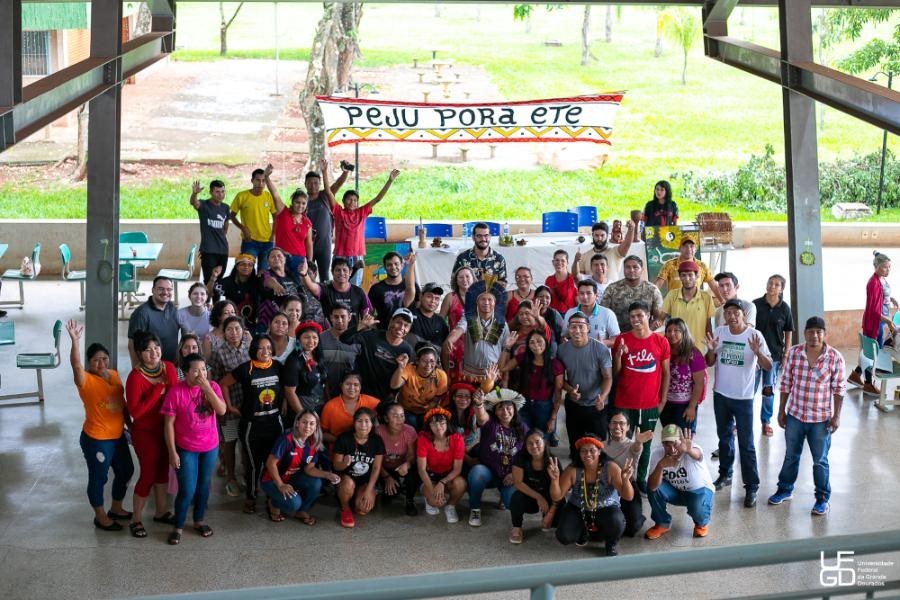BRICS Brasil celebrates partnership to produce radio bulletins in indigenous languages
The initiative, carried out in collaboration with the Federal University of Grande Dourados (UFGD), strengthens the cultural identity of these communities and upholds their right to communication and information in their native languages. The radio bulletins will be produced in Guarani and Terena.

By Franciéli Barcellos de Moraes / francieli.moraes@presidencia.gov.br
Recognizing Social Communication not only as a tool for disseminating information but also as a means of shaping reality —with the potential to democratize spaces and themes— the Secretariat of Social Communication of the Presidency of the Republic (Secretaria de Comunicação Social da Presidência da República/SECOM-PR) is celebrating an unprecedented initiative. In partnership with the Federal University of Grande Dourados (Universidade Federal da Grande Dourados/UFGD), in the state of Mato Grosso do Sul, radio bulletins will be produced in Indigenous languages—specifically Guarani and Terena—under the scope of BRICS Brasil. The content will be translated and recorded by Indigenous collaborators from the University and broadcast on BRICS Brasil’s official channels, as well as on the Brazilian Communications Company’s (Empresa Brasil de Comunicação/EBC) National Radio Network.
Brasil recognizes over 270 living Indigenous languages, some of which are also spoken in other parts of the Americas. By including and valuing these languages, the cultural identity of these communities is strengthened, along with their right to communication and information in their native languages—a right guaranteed by the United Nations Declaration on the Rights of Indigenous Peoples.
“It is very important to create visibility so that these languages reach broader spaces. By providing information, we also strengthen communication among young people, since Guarani is one of the most spoken languages. Being able to translate information into Indigenous languages strengthens Indigenous identity, which carries with it the knowledge of our ancestry,” emphasized Kelly Duarte Vera, a Guarani Indigenous person who is part of the translation team.
Jailson Joaquim, a Terena Indigenous person who also works on the project, agrees with his colleague, emphasizing that valuing Indigenous languages at international events helps preserve and revitalize these languages, many of which are at risk of extinction. “The translation of content into Terena, for example, not only enriches the event with new perspectives but also fosters a commitment to social justice and human rights, recognizing the importance of these languages, and giving them visibility on the global stage,” he stated.
The initiative reflects the success of the partnership between UFGD and the Brazilian presidency of the G20 last year, and extends to content from the 30th United Nations Climate Change Conference (Conference of the Parties).